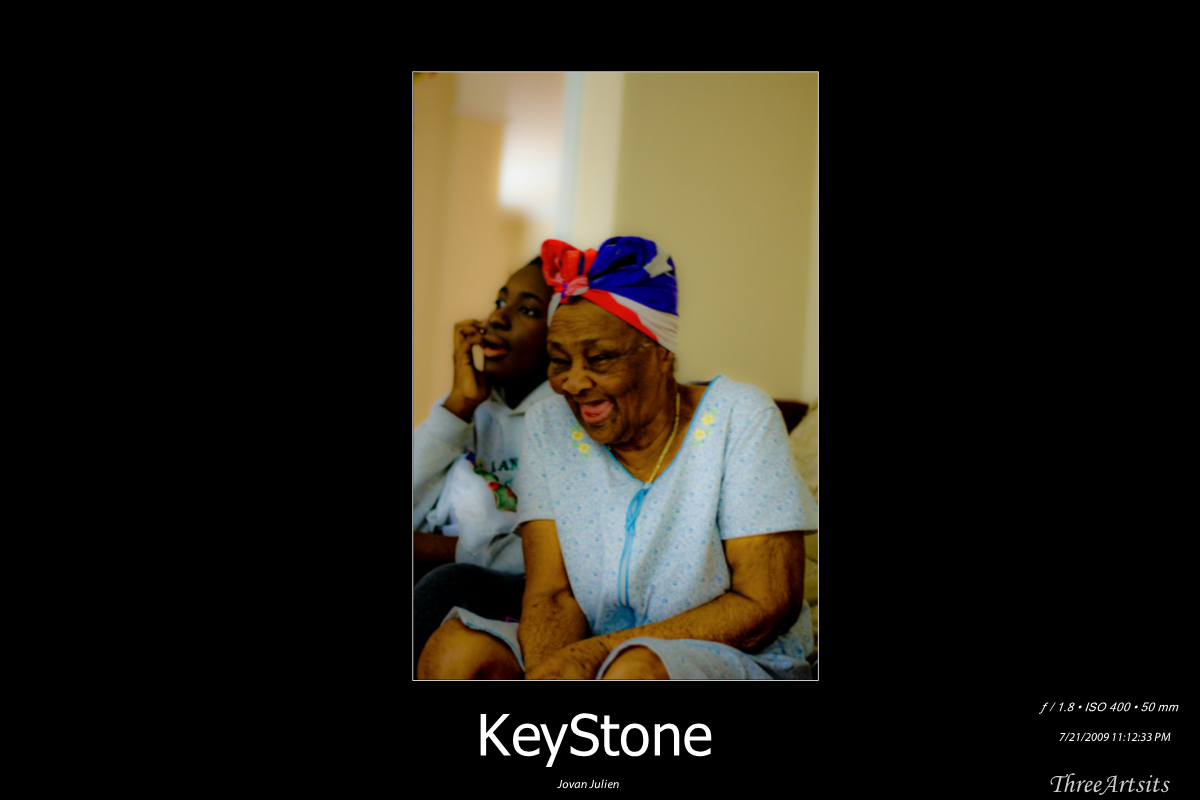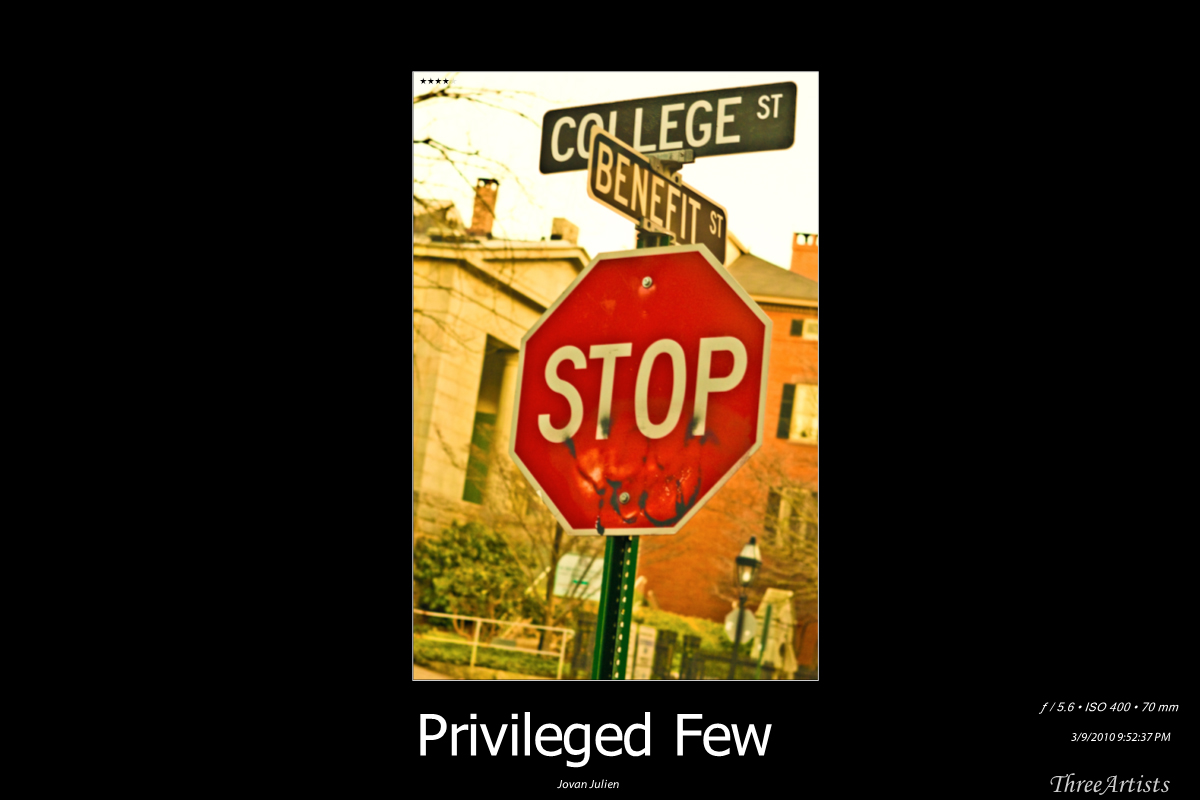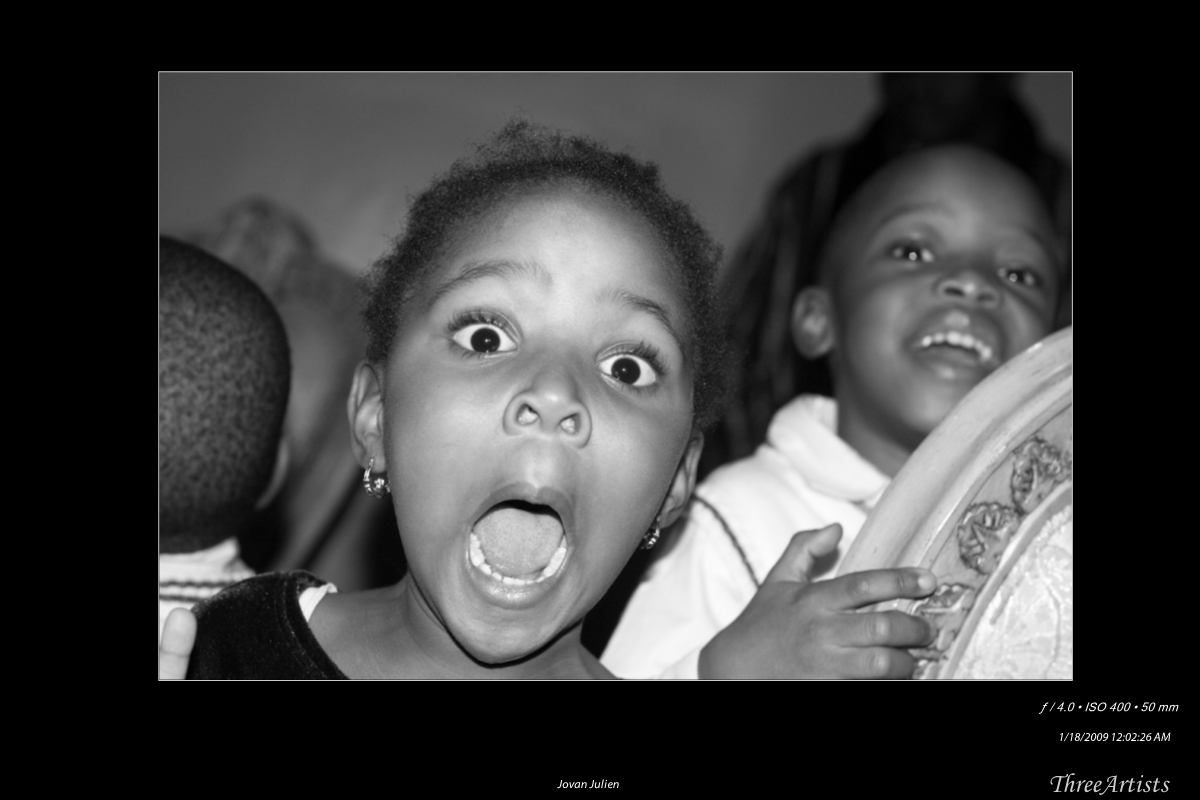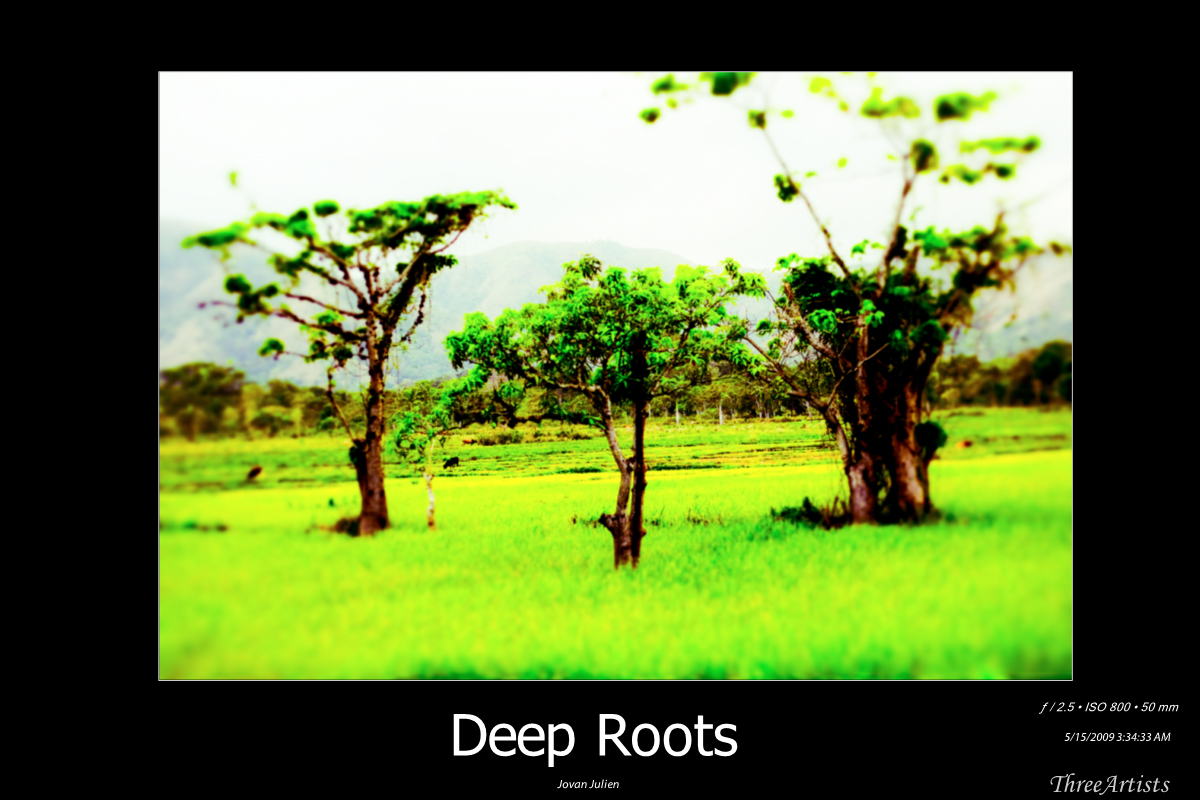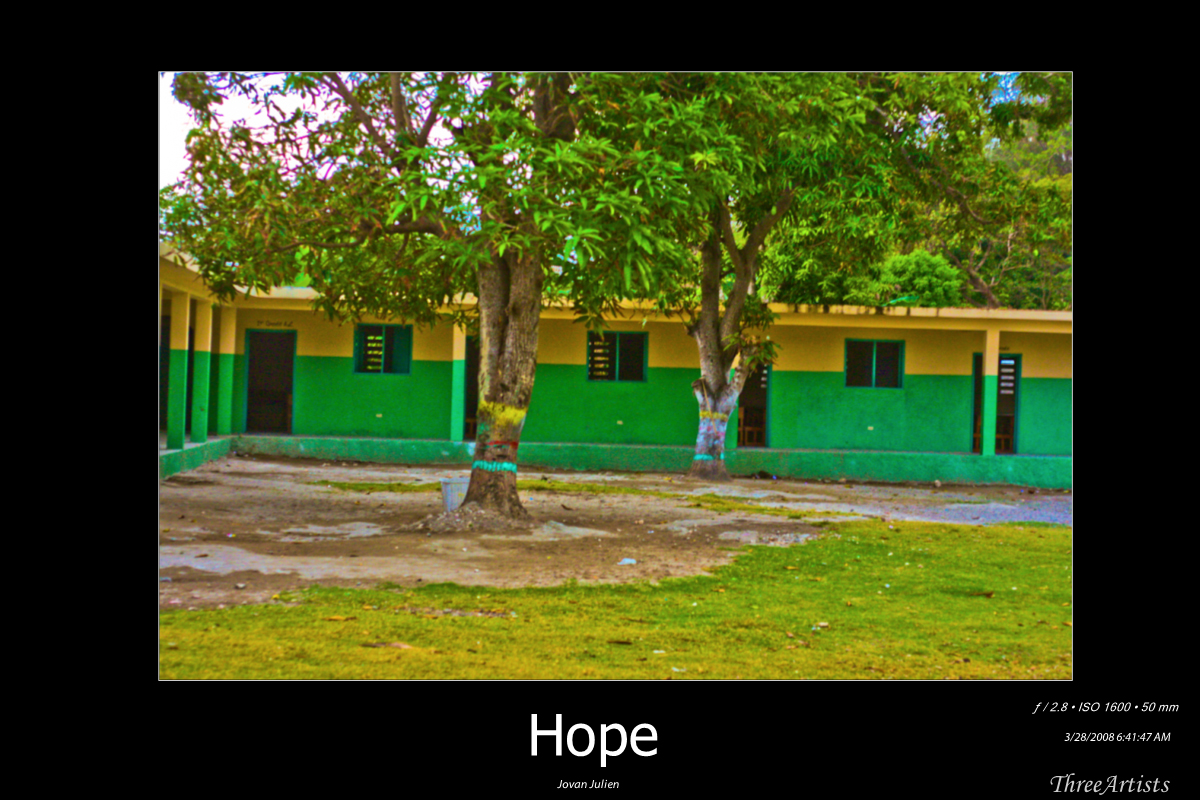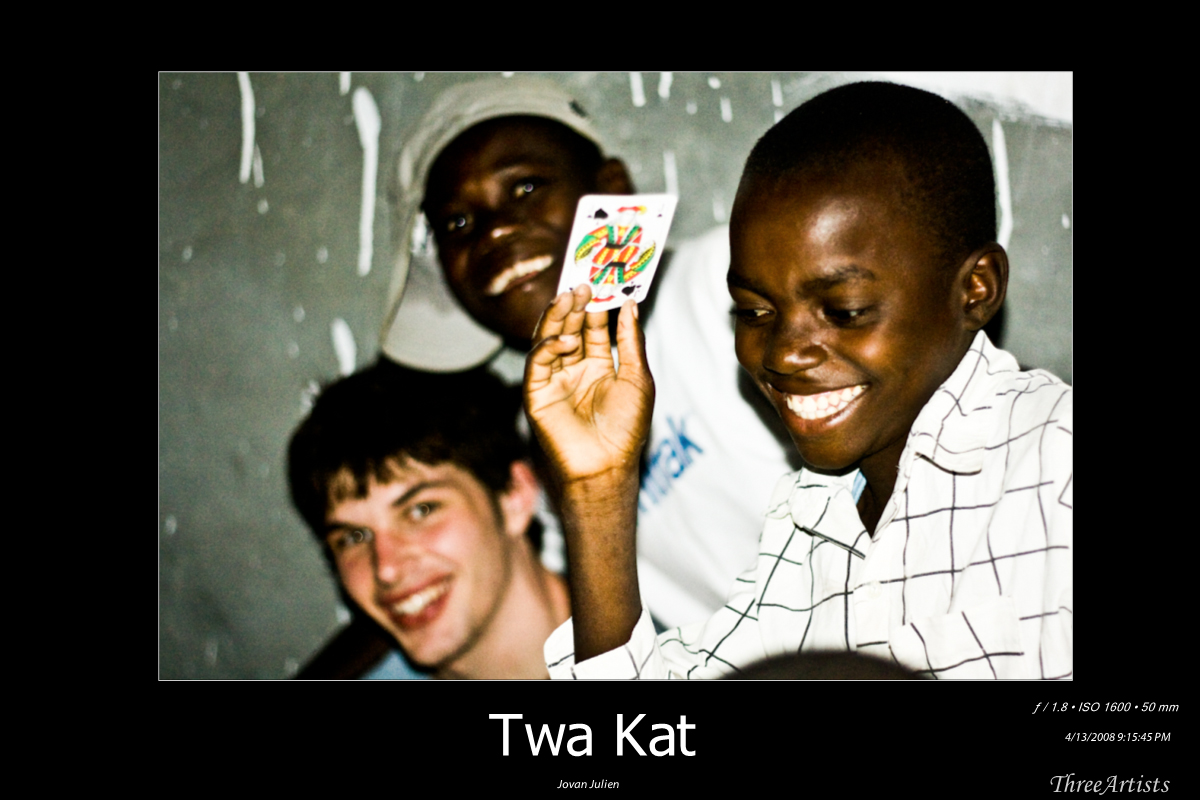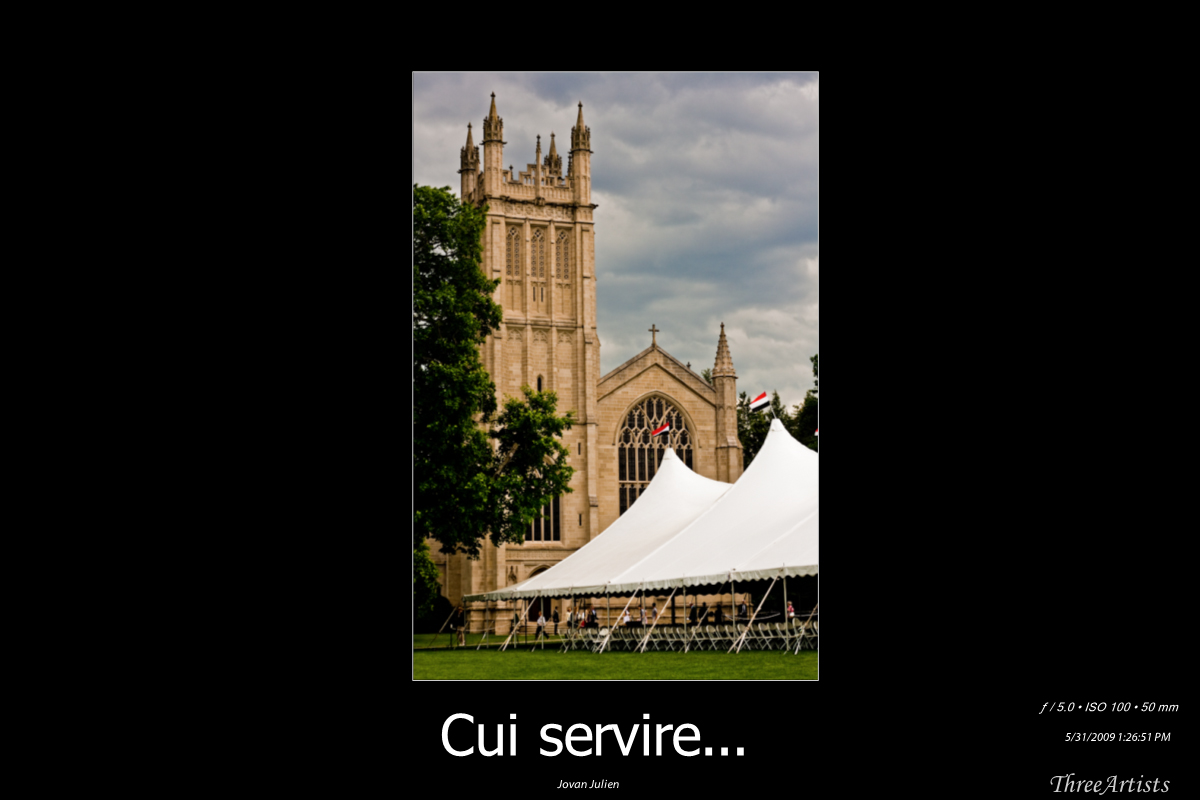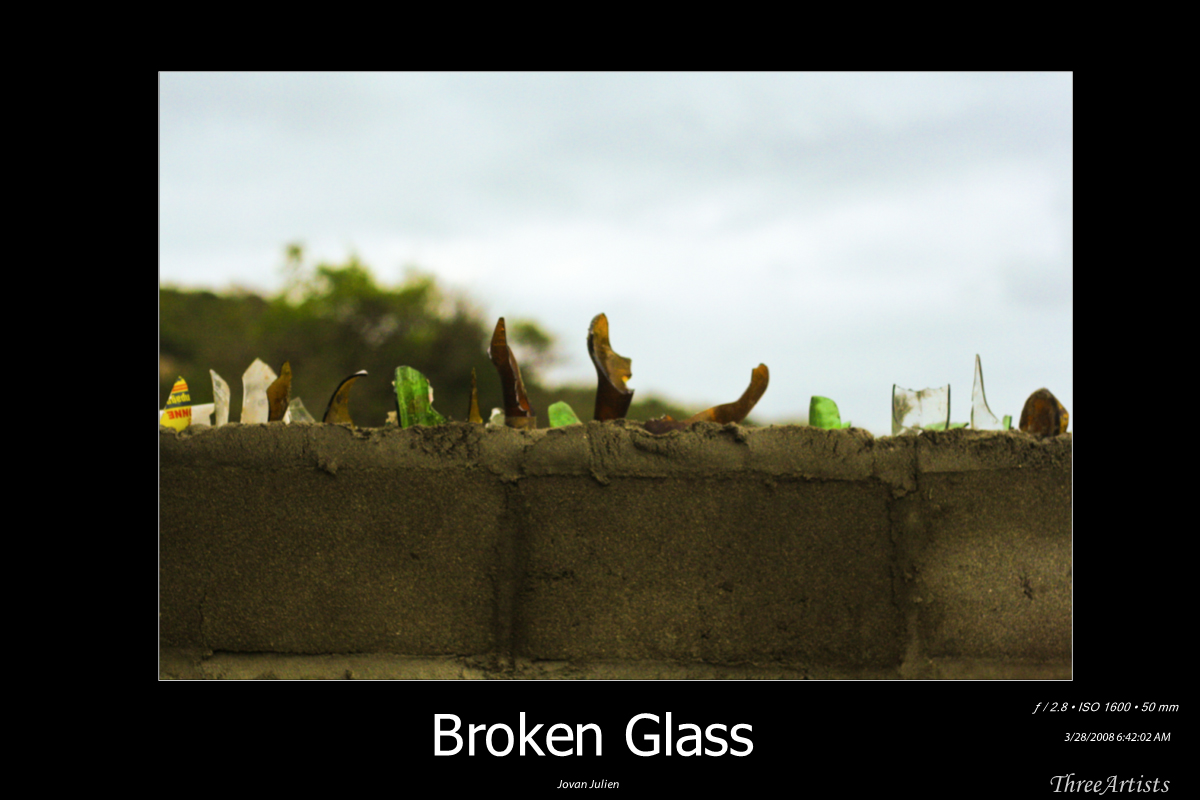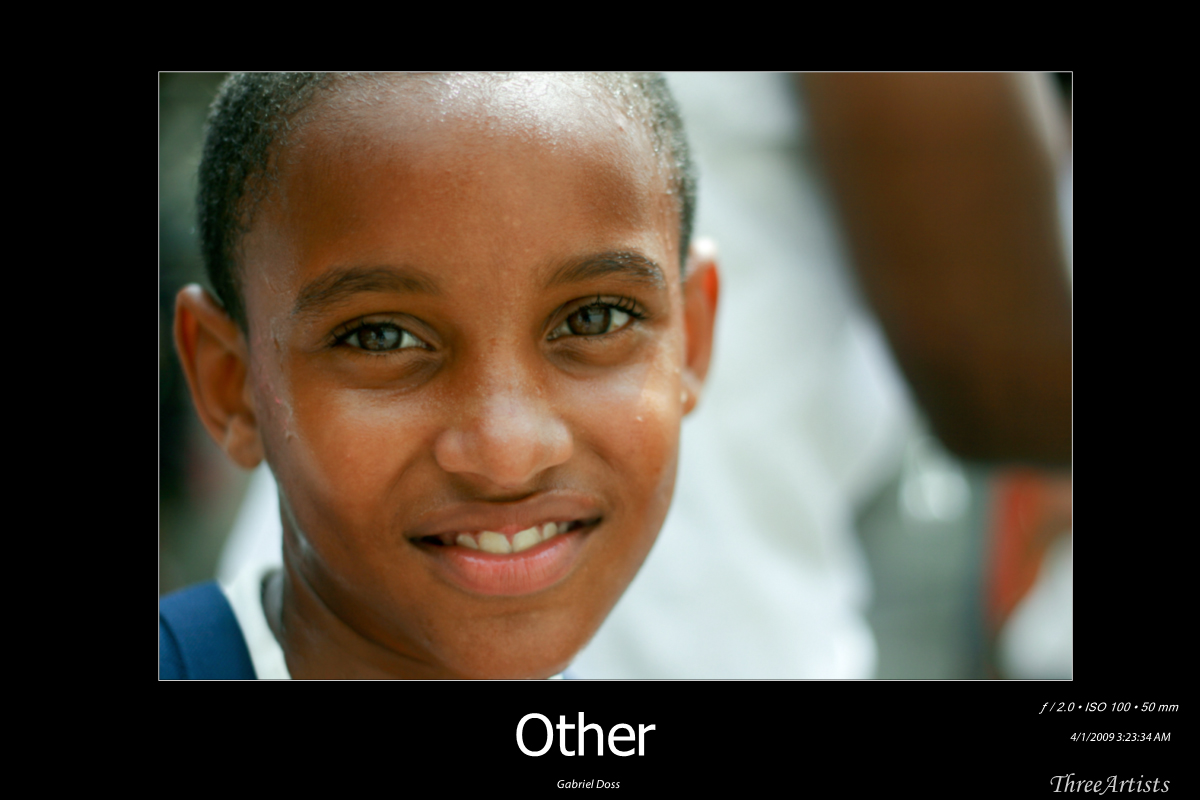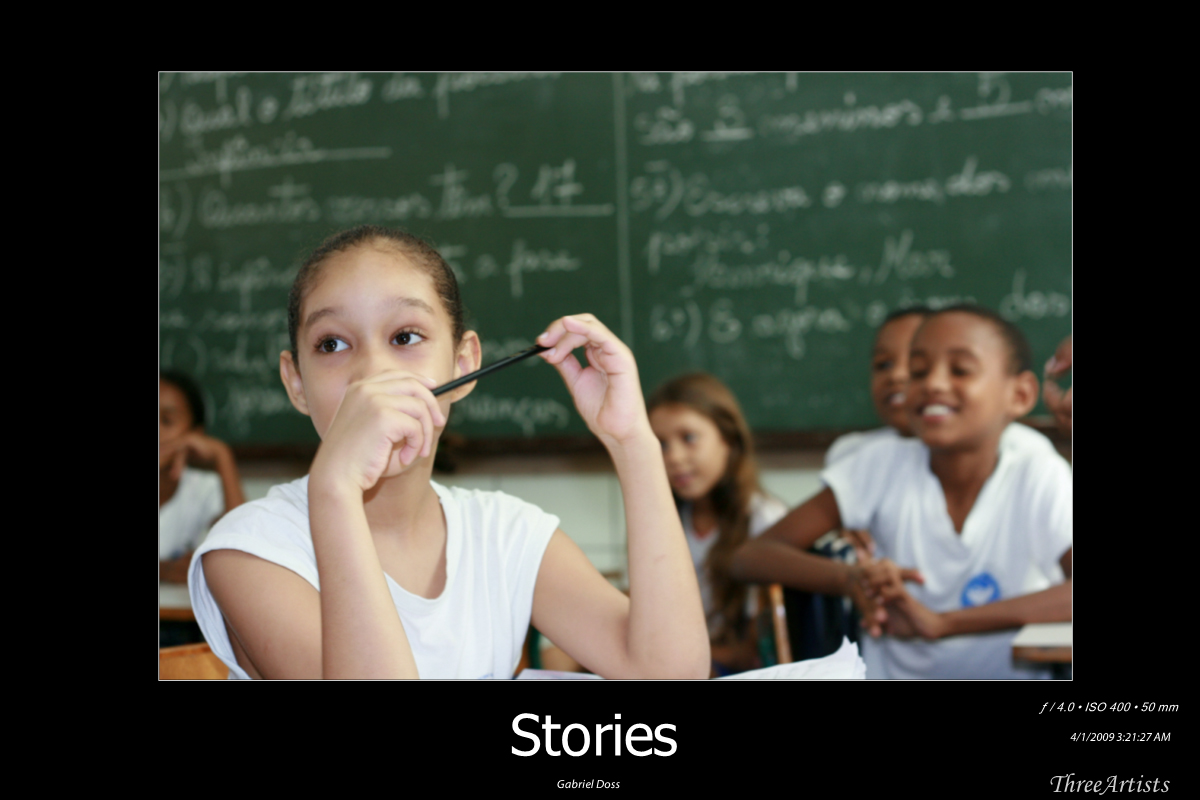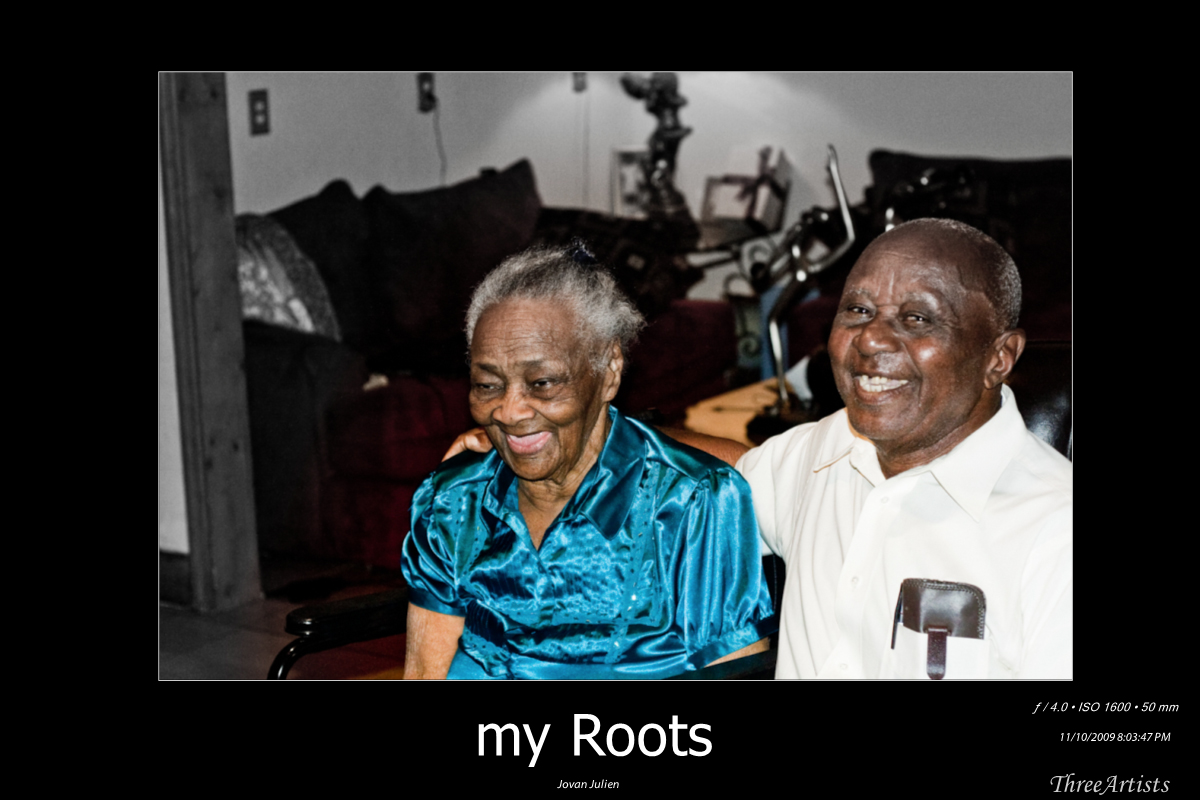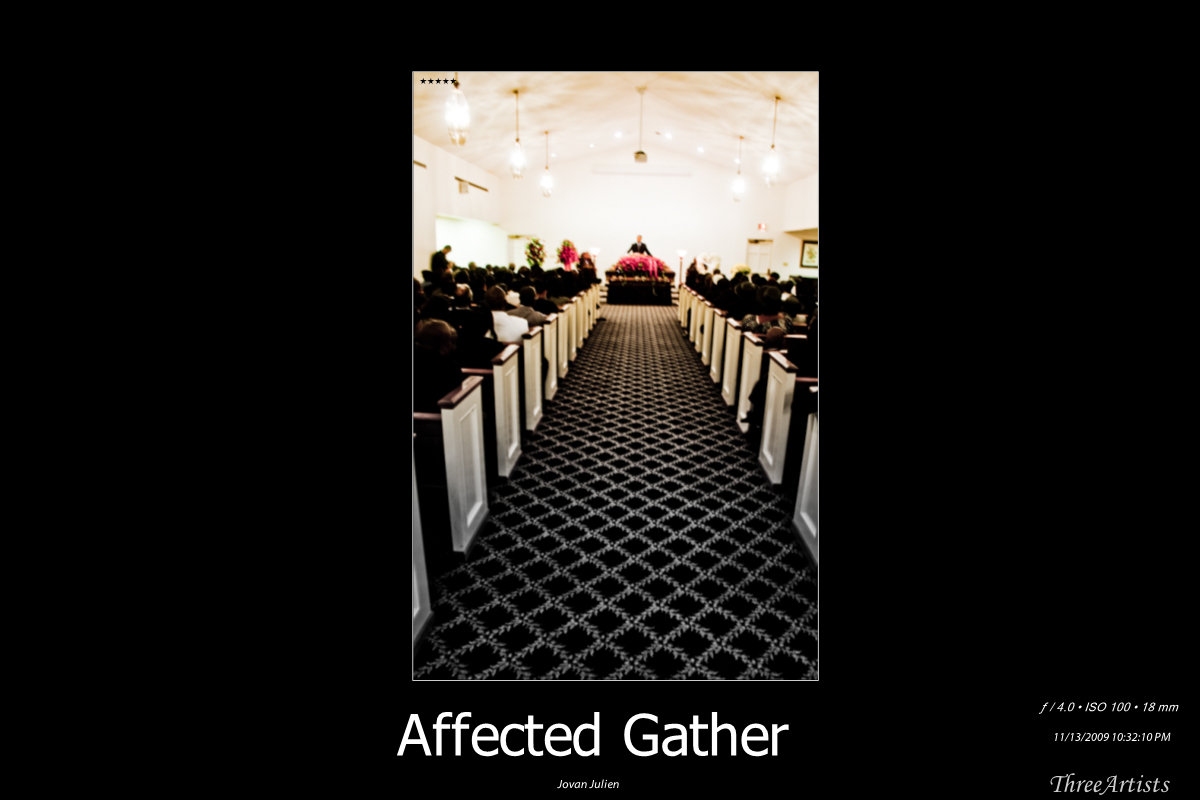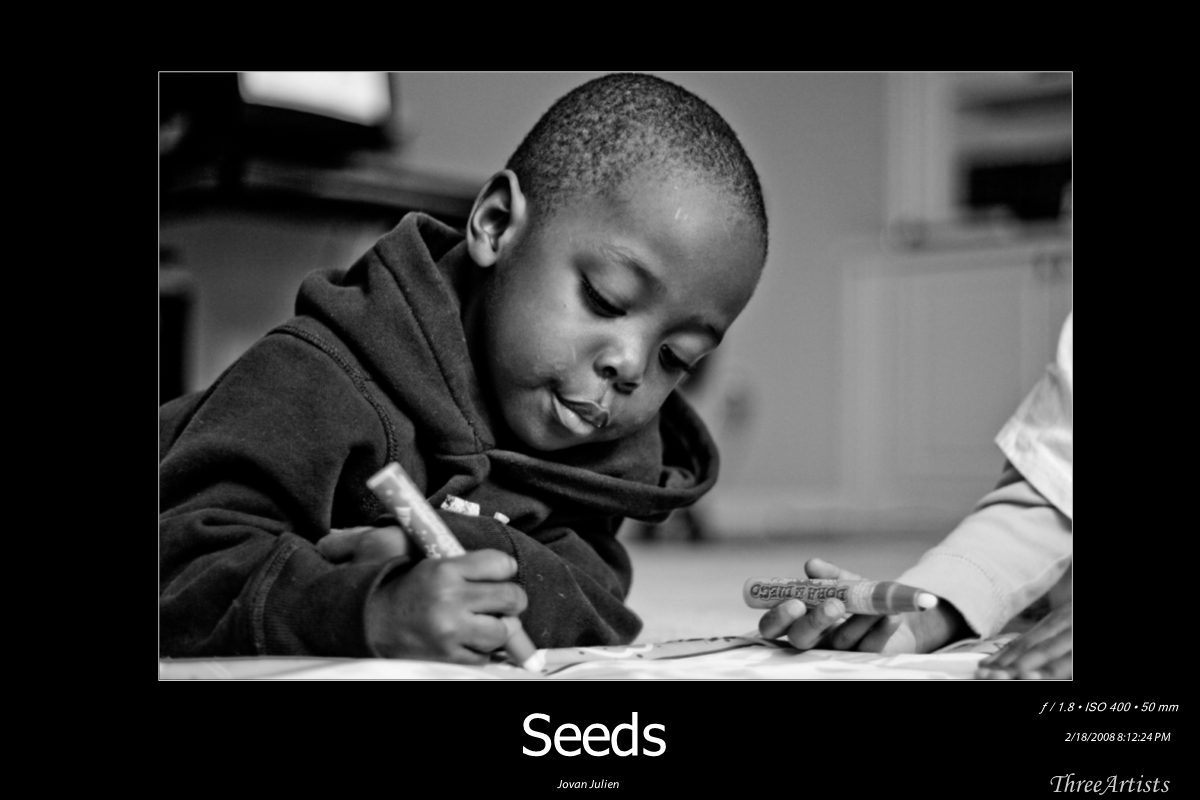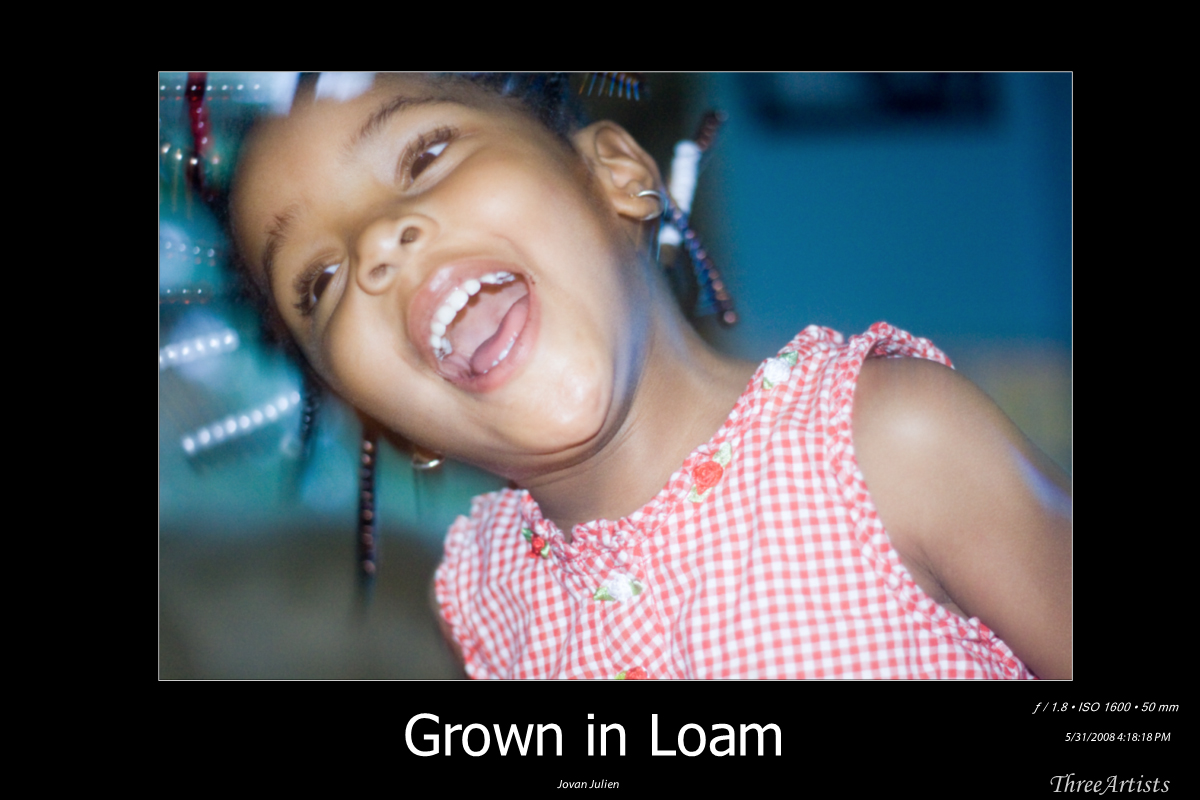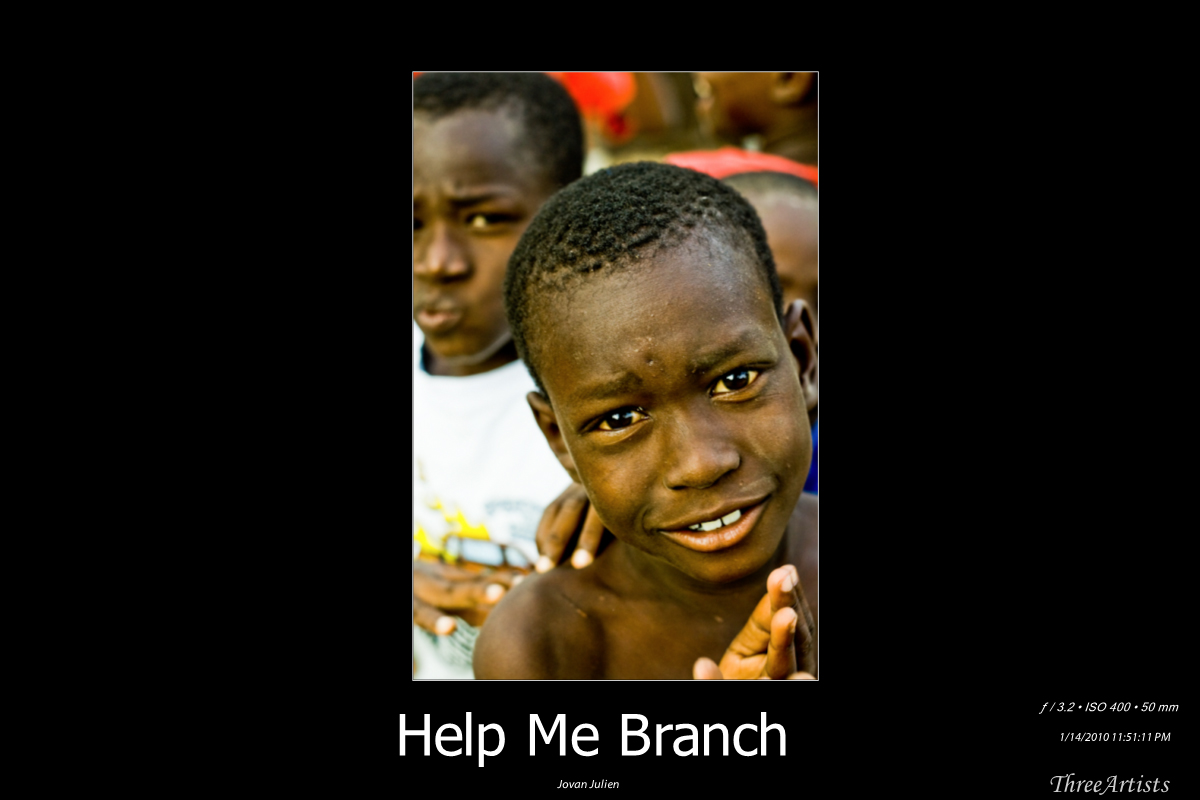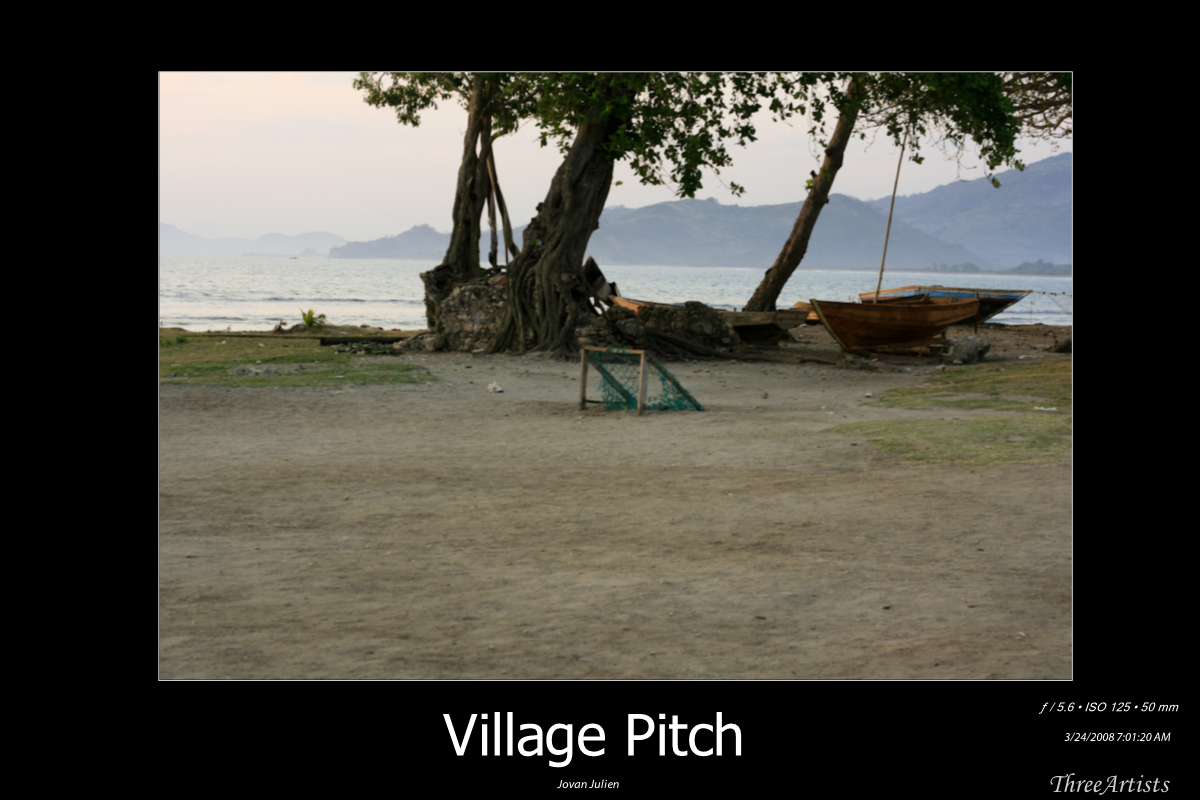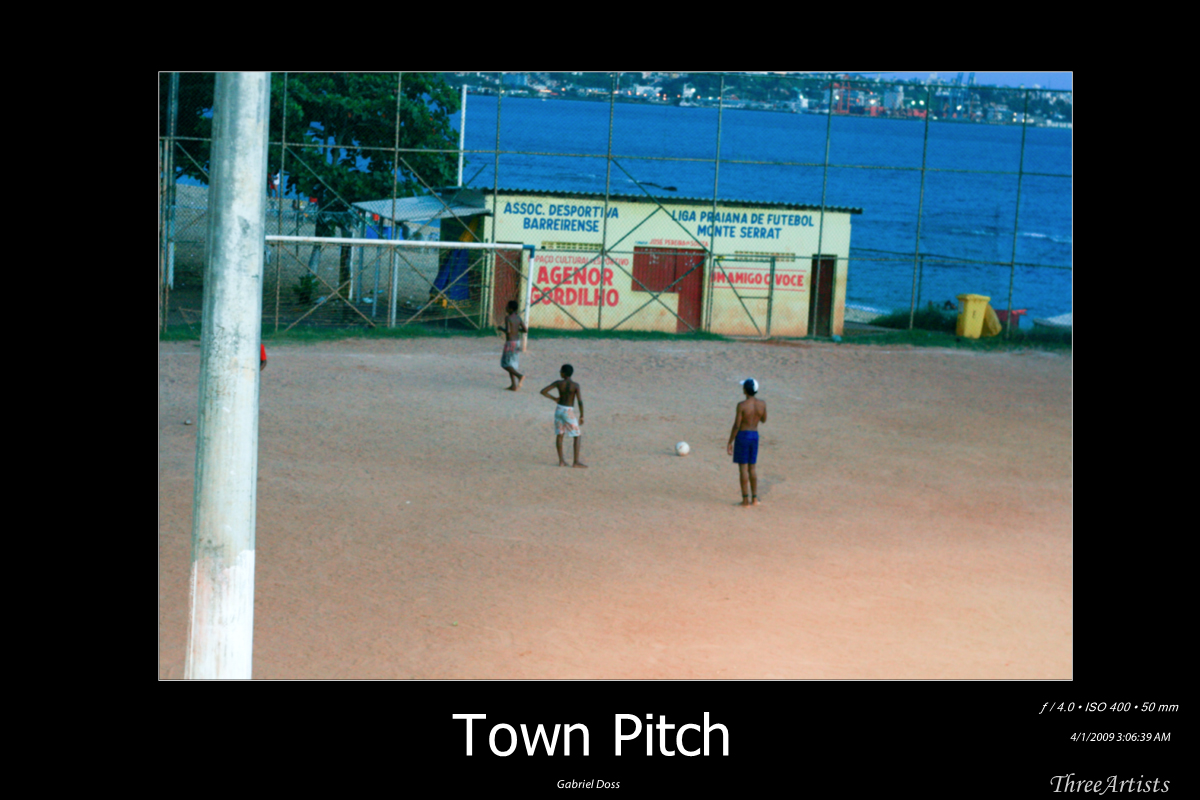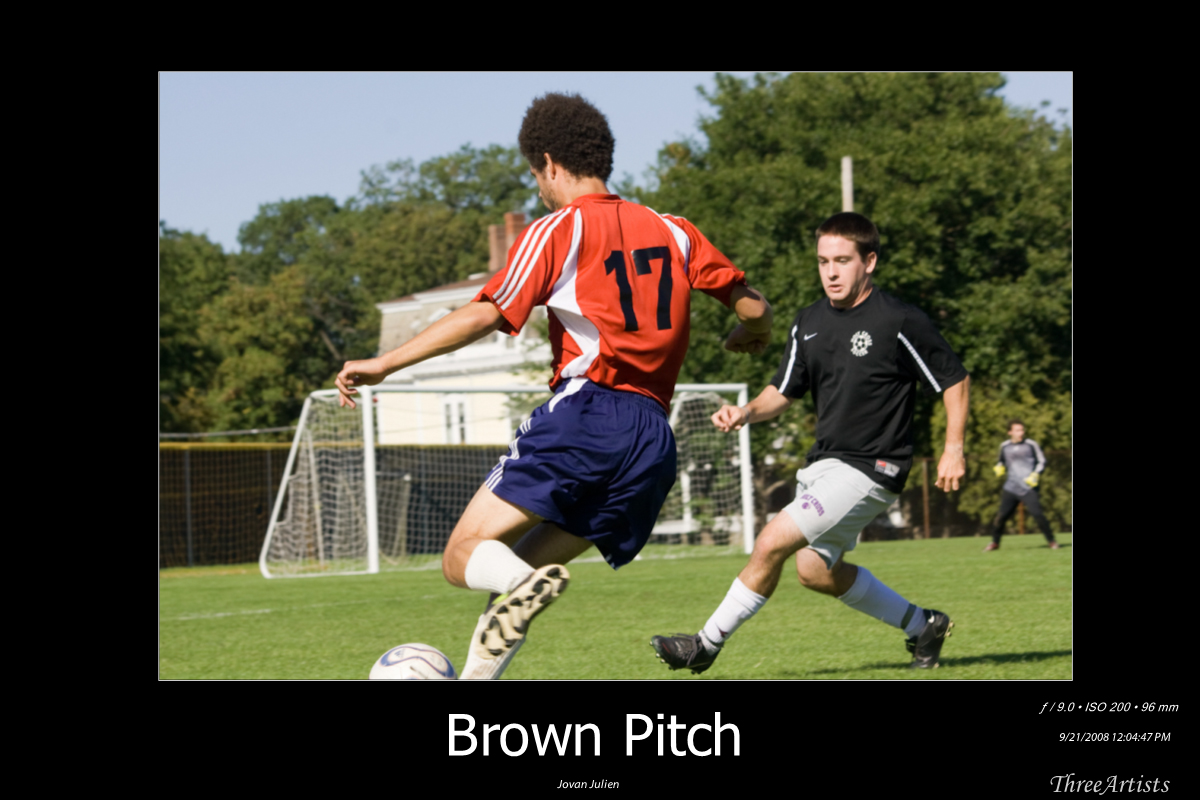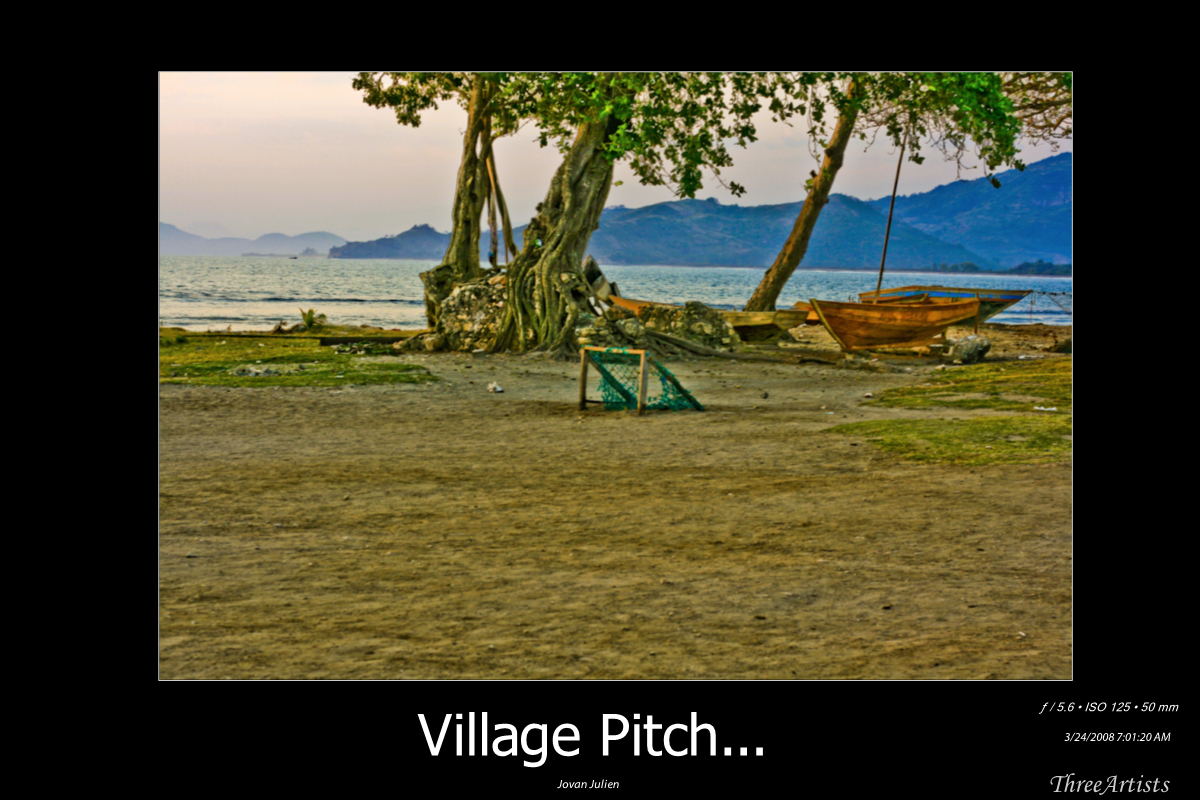My grandmother is my keystone.
Not in the beer sense but in the building sense. If you go on wikipedia you’ll find that a keystone is the stone placed at the apex(center) of an arch. It is the final stone that is placed during construction of an arch and gives the arch its structural integrity. Before placing the keystone the arch cannot carry even its own weight, but after the keystone is placed the arch can carry weight in one of the most efficient manners possible. One of the most interesting aspects of a keystone is that after the arch has been put in place the keystone can sometimes be REMOVED without the structure itself collapsing.
Meliana was her name. She placed my roots in Haiti.
She was a seed dropped into barren soil who bore fruit. Her roots anchored the soil, her leaves fell to enrich the land, and then her fruits littered the ground. I grew in this soil, in the cool shade of her love. She protected me, nurtured me, and now with the end of her days I continue her legacy.
I am a Haitian-American living amongst a privileged few.
I stop now to consider the footfalls that led me to this place.
I stop now to consider the benefits that my education will provide me in the future.
I stop now to consider the foundations laid before me by generations and the foundations I must lay in their honor for generations future.
I stop now to study my roots and thus to learn about myself.
Now that you’ve met the roots (my Grandma) and the branch (me) meet a seed that has fallen and begun to grow. This project of defining my roots is as much for her as it is for me but thats a story for a different day.
The roots of my position in this society are three-fold. I am Haitian and I am American. Perhaps most importantly to this story, I am also a child of capitalism.
I am HAITIAN. That means my roots are in Haiti, the first country to stop and say enough was enough. The first country to defeat Napoleonic forces on the battlefield. Haitians spoke truth to power and have been punished for it ever since. Brother stood next to sister and fought saying I may die but our collective freedom is more important to me than my own life.
This school in the little Haitian town of Bod me Limbe is the Genesis of this project. In spring of 2008 my sister, a group of Groton alumni, students, a teacher, and myself traveled to Haiti as part of a service trip. The trip in the end was probably as self-serving as it was helpful, it would have been equally if not more useful for the residents for us to save the money we spent on flights, and vaccines, and food, and passports, etc and simply have sent it to them.
Hearts Together for Haiti, the group that runs the school, is a Canadian charitable organization that provides a free education to the children of the area. In essence they provide hope to the village. It’s for no small reason that Haitian parents the world over value education more than anything else. Education is one of the few avenues for success in Haiti, but few have access to it. There is no real public education system and thus most families have to scrape together what little money they have to send their children to school for a couple of years.
I wouldn’t call myself a complainer but I do complain. I complain when I can’t order ribs at a restaurant. I complain when I don’t get the best grades or the best teachers. I complain when the cards don’t fall my way.
Which is why these kids are my heroes. We throw the word hero around a lot in our society. Just go on google, espn, cnn, bbc, or even brown.edu and search hero. You’ll find plenty of stories but rarely about kids like these.
Kids who play the hand that they’ve been dealt despite the unfairness. They hold hands with no spades and yet in life unlike spades there is no re-deal. And so they struggle on fighting with every inch of their beings to win a couple books and ensure the next hand dealt to their progeny is but a little bit better, a little bit stronger, and a little bit juster.
These are the children OUR society chooses not to invest in.
Before we move further its equally important for me to acknowledge all my roots. I am Haitian, I am American, I am middle class, but I am also part of the elite. I am part of the elite of the capitalistic world because of the education I have been able to receive. I attended Groton School. Google that to find out more but of important is only that the school educated about 350 pupils and had at some point an endowment of over 350 million dollars. I spent my childhood being educated at a school where my every need and concern was provided for.
I now attend Brown University. I am receiving one of the best educations in the world. I don’t think I’m being conservative when I say that I dont think there are any more than 200, 000 (top 40 schools in the nation) students in America receiving a similar quality education. That is the richest country in the world provides only .06% of its population the quality of education that me and my fellow Brown students receive. The numbers only get more staggering when you start to think about how many of the 6 billion + humans living on this planet will recieve similar education. I say this only to ask two questions.
1. Why us?
2. What it is our responsibility to humanity given that we are the few whom the system has chosen to provide for?
lines the walls of the school in Bod me Limbe. We placed the glass in the cement walls when we were building them to provide security to the school. This is where the next generation of Haitian seeds will develop.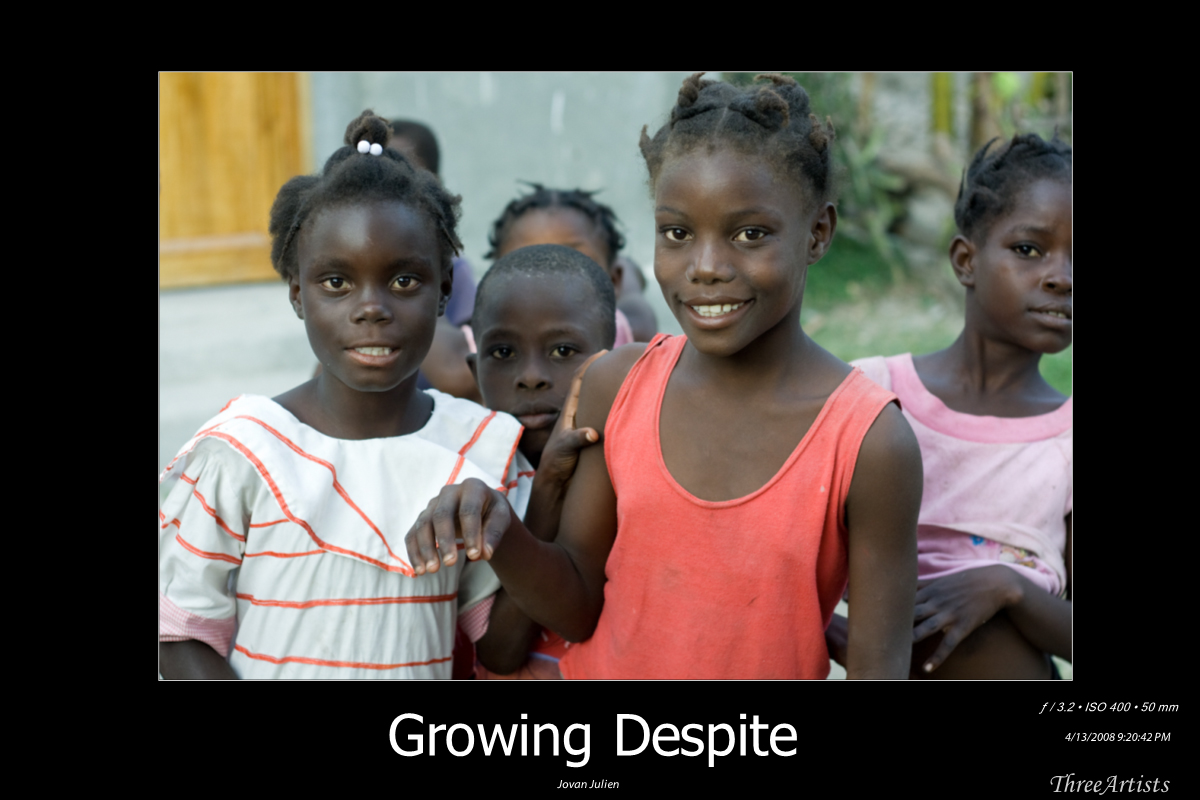 Despite our(humanity’s) failures I cant help but hope that these girls will flourish. I feel innately connected to them because these girls are my grandmother. If she were born 86 years later and were still on this earth this would be her. They will be the roots of a new generation but what will that generation look like. I can’t help but imagine what they could do, who they could be, and the Haiti that they would anchor if they were given the opportunities and education I have been given.
Despite our(humanity’s) failures I cant help but hope that these girls will flourish. I feel innately connected to them because these girls are my grandmother. If she were born 86 years later and were still on this earth this would be her. They will be the roots of a new generation but what will that generation look like. I can’t help but imagine what they could do, who they could be, and the Haiti that they would anchor if they were given the opportunities and education I have been given.
What would my grandmother have done if she had had a chance to attend Groton and Brown. I have no doubt that she could would should have been a Rosalind Franklin or Marie Curie.
I write now aware that there are many stories in the world. Over six billion people live in the world and each has their own story. Their own hopes, their own fears, their own dreams. Too often we go about our lives unaware or unwilling to consider others. Perhaps it because our guilt would be to great when we consider our lives and privilege in the context of the pain it causes others, the factory worker in china who commits suicide because of the working conditions, the Haitians (whom we said we wouldn’t forget) who continue to die and suffer, or the homeless man on the street corner who you walk by while enjoying your sandwich, or the children who do not get educated in our (American) public school systems.
The OTHER isn’t in fact an other but US. We are all HUMAN. In our world economy we are all connected. Your desire for a cheap IPAD is inherently connected to the death of the Foxcomm workers who choose to DIE instead of continuing to work in disgusting conditions, their humanity ignored, dreams crushed, hopes over.
The other is this beautiful young man growing up in Brazil. He attends a school where the beauty of his blackness is cherished in a country where his race is not. Nearly every major religion promotes the idea we should love our neighbors as ourselves. Not to just love the one next to you whom you can most identify with, but also not to forget the others, the far, the downtrodden, the HUMANS who live all over our planet.
For their stories our just as important as ours. As I look out into the world I realize more and more my own biases. The story my mind constructs when I look at this picture is very different from ones I construct when I look at the pictures of the Haitian girls from earlier. The difference arises from my own personal biases ingrained from years of indoctrination in the western world. This brazilian girl, sitting in a classroom that reminds me of my elementary school speaks to me because I believe we share something, some similar understanding of the world because her worlds looks like mine. It leaves me a bit distressed that I feel more connected with a Brazilian children because of the layout of their classroom then Haitian children who share my same history.
As I stated before my root and foundation is my grandmother. She sits here months before her death after having already cheated death. If she was an animal I’d have to say she was a cat who used her nine lives plus some. She survived the death of her father and mother to raise her younger siblings at the age of 10. She survived the Duvalier’s. The death of her husband. The death of her second son the family breadwinner. She was the diamond in the rough. The unbreakable. The TRUTH, my TRUTH if there ever was one is that I shouldn’t, couldn’t, and wouldn’t be here without her. Not only wouldn’t I have turned into the person that I am today with out her love and support, I along with countless other humans wouldn’t be where we are today without the selflessness she displayed throughout her life. Despite losing her husband at an early age she chose to forgo finding another man and instead as always to support her community.
In October of 2009 the affected gathered twice in two weeks for funerals. Once to celebrate the life of my grandmother and again to mourn the early loss of my Aunt. The combined event left me staggered. Witnessing the power of two people to inspire and support others left me breathless. Haitian men and women gathered from far and wide, many having not seen each other for more than a decade, to pray tribute to an 86-year-old Haitian woman. For most of the world her death meant nothing, just another old black woman who had died of natural causes. For those of us who were there though we were witnessing the passing of a legend. A role model who we strive endlessly to mirror.
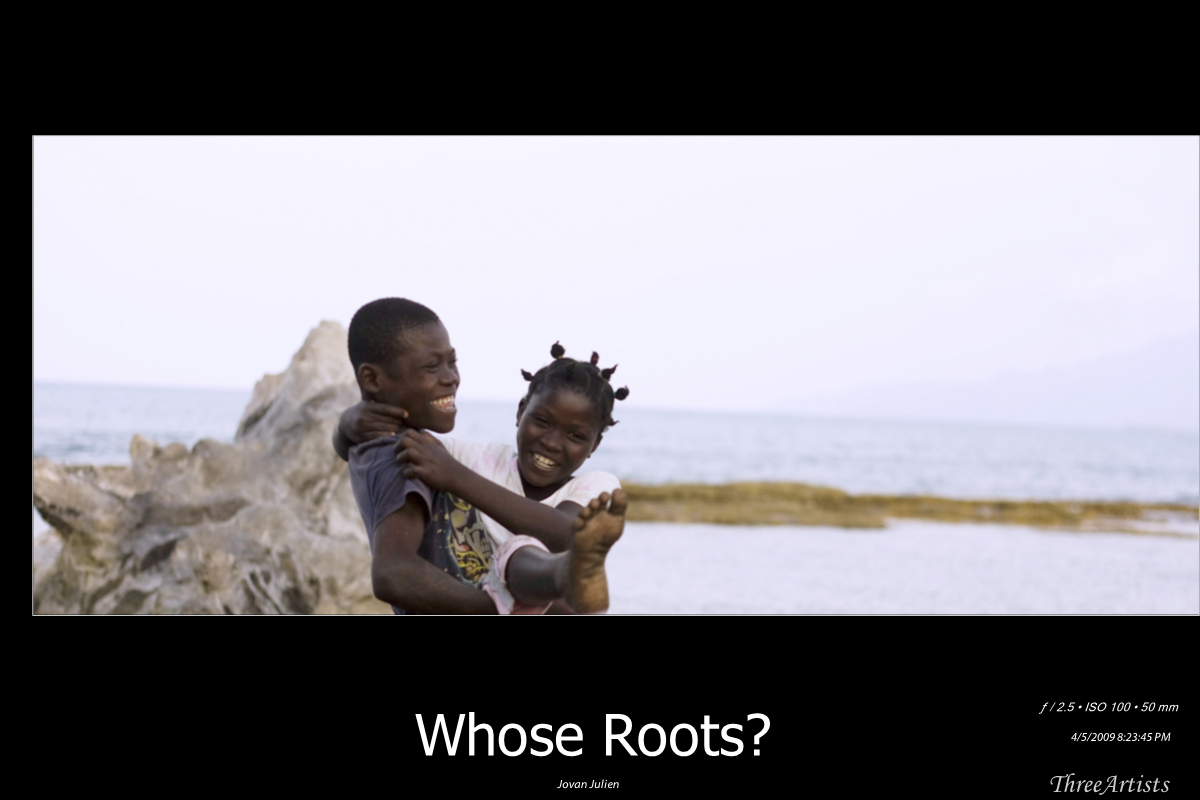 As I spent time in Haiti I was forced to recognize the similarity between my grandmother and her brother and these children. Whose roots could these children be? The family trees for whom they will serve as roots, for surely they will be the roots of something, deserve the chance to blossom just as the Julien/Borgelin’s have. My grandmother left this earth having created a bright future for hundreds of lives but why is it that we needed literally the strongest seed to have a chance at a “good” life. These children and their progeny, all humans in fact, deserve a chance at a promising future.
As I spent time in Haiti I was forced to recognize the similarity between my grandmother and her brother and these children. Whose roots could these children be? The family trees for whom they will serve as roots, for surely they will be the roots of something, deserve the chance to blossom just as the Julien/Borgelin’s have. My grandmother left this earth having created a bright future for hundreds of lives but why is it that we needed literally the strongest seed to have a chance at a “good” life. These children and their progeny, all humans in fact, deserve a chance at a promising future.
Every morning I wake up to a picture of my brother’s kids. They are the product of our family’s struggles, but also of our successes. For every perceived obstacle they will have to overcome, such as their Haitian ancestry, their blackness, etc, they have advantages that most (I’d guess 5 billion of the 6 billion on earth) humans on earth would kill for. They are American citizens, middle class, well fed, and will most likely be educated quite well. These beautiful children bring up some complex questions for me. I look at them and consider that for generations my ancestors have struggled, fought, and slowly but surely improved the lot of each proceeding generation. Their struggles have placed me at a critical point, at a mountaintop if you will. Their mores and morals force me to look about me and reconsider all that I have dreamt of, all that I aspire to.
For my entire life I’ve watched my grandmother and my father as they sacrificed everything for their children and their family. Through them I set my goals, to earn enough to leave my family in a secure position for generations to come. The problem is that, I’ve increasingly begun to question how noble my cause is. I must now consider the billions below me, the billions less fortunate, not just consider them but figure out what I owe them. The education with which I’ve been provided has opened my eyes not just to the suffering of those less fortunate but also the role I can/should play in bettering their lives. Learning about men like Paul Farmer and Nelson Mandela and women like Mother Theresa and Aung San Suu Kyi has proven to me that we each can have a profound effect on the world. (Don’t misunderstand me, I don’t mean to say I will ever achieve the profound positive influences that these people have had on the world, but I do believe I’ve been given the opportunity and thus the responsibility to have a positive effect on the world in whatever way I can.)
And so I ask what do I owe to the seeds of this next generation?
Who do I owe the most to?
Should I be providing as advanced a position as possible for Shanna, Kenaz, and Kemiel? Helping American children in general as I’ve chosen to do for the next two years as part of TFA? Or maybe something more?
Up to this point in my life I’ve been infatuated with my family. It doesn’t hurt that they are profoundly beautiful; not just to me but to anyone that sees them. The family life I have enjoyed has profoundly affected me. I feel indebted to my ancestors to continue the trend, to advance the family, and yet at the same time my ancestry itself asks me to do more. Haitian immigrants and Haitian slaves before them shaped my opportunities; I struggle each and every day with how to live up to both these legacies; to do right by Shana (pictured above)and her brothers in the mode of my father, who has given his whole being to ensuring the continued upward mobility of my immediate family through his care for my sister, brother, cousins, and I, while simultaneously living up to the legacy of the countless nameless slaves who gave their lives and their familial futures for the freedom I know enjoy.
(This ultimate sacrifice is something that is against the very nature of what scientists believe to be life, the continued survival and replication of our DNA . These men and women who rebelled, knowing they would probably die, against seeming insurmountable odds, transcended the physical and for me approach the eternal. How else to say thank you if not to find a way to work for the common cause of humanity as they did)
Recently many people have commended me on my choice to work with Teach for America for the next two years. Many commend my choice to choose a job that is “community serving.” While I understand why they say these things I nevertheless feel that they are looking past some important considerations. Personally I look at my choice to pursue the TFA career as profoundly self serving. I am getting paid (while the salary isn’t quite as good as an engineering job, it is nevertheless much better than what I might be making in Haiti) and it allowed me to be closer to my family. In the same way that I struggle with whether I should be focusing on my brother’s kids or the children in my school in TFA, I’ve been left with an even bigger and more profound question: How can I, a person of Haitian ancestry, choose to ply my trade in America at this time? Yes, TFA helps many, and I may have a profound influence on hundreds of American students who pass through my classroom, but don’t I owe something to my family’s country of origin? Couldn’t I go further out on a limb to help? In many ways I’ve chosen a path, that while nominally selfless, is in fact quite safe, secure, and self serving. I think there lies the root of the struggle, the root of my struggle at least, how far is it safe to go? How much personal risk am I willing to take on for the cause of others? In the end the most gains are made by risking the most, but will I risk it all? (Probably not)
It may take a lifetime but I hope to find an answer to balancing the equation, to figuring out how to do right by myself, my family, my country, my ancestry, and humanity. Too many times I think we forget that we have a responsibility to all these aspects of our world community.
Is it right to help my family when American children are in much worse positions, is it right to commit to TFA and American children, when Haitian children face far greater struggles, and is it right to focus on Haitian children just because they look like me and share a common ancestry, when there are billions living in just as poor conditions? Is there an answer?
I can’t say that its right, but I can say that its harder for me to ignore my societal responsibility the more connected I feel to another condition. It continues to puzzle me that Americans seem to feel more connected to their pets, as showcased through their outrage at Michael Vick, then their fellow humans, as showcased through the lack of outrage at the continued Genocide in Dafur.
Its infinitely easier to care for people who look like us or whom we believe share some commonalities. In the mid 80’s college students stood up to their university administrations, and citizens stood up to their government, and forced many to divest from interests in South Africa. The plight of the native peoples was taken up with great vigor, in large part I believe because Americans see a reflection of their country in South Africa. Even the racial tensions are the same White vs. Black. I can’t help but ask myself why as much popular support has not been found for the Palestinian cause. In the end I think its because in our day and age its easier for American to put themselves in the shoes of the Israel establishment (western, democratic, fighting the scourge of terrorism) then in the shoes of the Palestinians. Its crazy how you switch blacks for muslim’s and somehow many lose their ability to connect with an oppressed people.
I raise these questions not because I have answers, but because in the end I think they’re worth thinking about, worth considering. We all, each and every one of us, make personal decisions on how to divide our time between these different foci. The way we choose to split our focus is inherently personal, and therefore should not be judged [Many religious texts tell us not to judge, maybe they are on to something 😉 ]. Given the comparative opportunities afforded to any one reading this text, I think it important that we consider the implications for the world of our own personal choices.
The questions brought up earlier in this post were in many ways inspired by the next series of pictures. Playing soccer on this pitch (the proper term for any soccer playing surface) profoundly changed my life and how I perceive myself in the world. During our stay in Haiti, we (our small group of high school and college students) played a series of matches against the village soccer team. Their (I say their only because the community made it very clear during these matches that my sister and I were not part of them) team was made up of the village’s best 10-12 year olds. When I say they destroyed us, I mean they routed us as if we were the North Koreans and they were Portugal. We were forced to play an ugly defensive game as they sped past us with skilled passes and deft speed and strategy. We were amazed by their ability to play shoeless as we struggled on our unhardened feet; but all that is a story for another day.
As if I had miraculously been returned to a sixth grade gym class, I stood profoundly uncomfortable as the team’s separated to their respective halves to begin the game. I had been called blan (white) throughout my stay in Haiti but here, on the football field, I finally saw the difference. My experience, my life, my choices, my soccer was profoundly American. I had been struggling with my identity throughout the trip but on this soccer field I realized that while I am affected by my Haitian roots, the setting of my growth had made me inherently more American than any other identity when considered in the context of the whole world. Watching the children play, seeing how they understood each other’s movements made me realize that as much I wanted to be Haitian I would never be only that; and more importantly in my current state it was right and good of them to call me what I was: an American.
It’s interesting to me to consider the disparities in the accommodations and luxuries different communities enjoy. The poorest in the world play soccer on a dirt field. As we move up in the relative worth of the community, we see that these Brazilians play soccer on a dirt field as well, but they get true soccer goal posts to shoot at. I’m sure the Haitian village would love to have these goal posts but the beauty of their game and their field is that they find enjoyment in it regardless of the type of field they play on.
We can take this comparison further by looking at the field that INTERMURAL SOCCER plays on at Brown University. Earlier we spoke about the unequal division of resources in monetary terms, but seeing the actual difference in physical terms can also be helpful. I cannot truly fault the system because I am a part and a product of it; I enjoy my laptop, and camera, and ability to spend time asking these questions. Is it fair, or right, or just, that we enjoy these fields at Brown when the Haitian community at Bod-Me-Limbe makes due on dirt and without shoes? More importantly, is it fair that we do this and complain about dry fields when thousands are dying around the world each minute due to starvation? Is it just that our universities, and schools, and citizens, and families, and friends, and we, (myself included), horde money and stockpile goods while billions of humans live in conditions far worse than the average pet animals of many privileged westerner families?
While others look at this pitch and see something sad and small it is way more than that. For me it was where I discovered and came to terms with my mixed identities. For my companions and those who competed against us, it was a chance to realize our shared humanity. As the whole community cheered against us, I think our loss gave them something powerful: the knowledge that they were just as valuable as humans as we were; that our Americaness did not make us infallible, but rather that our humanity made us equals( or at least that we should be equal). The pitch made me realize that life in Haiti is in its own way a beautiful thing. Yes on average Haitians don’t share the same material wealth as we do, and don’t enjoy the same conveniences, but their lives, their triumphs, and their struggles are just as beautiful and just as true as any other person’s. Saying that and truly believing it were two definitive steps towards figuring out where I think I fall and what my responsibility is to our species and our world.
Post Script:
Photographer’s Dilema
- As a photographer and a person, I constantly feel the pull between two separate urges. The urge to live, enjoy, and fully engage in the present is constantly at odds with my compulsion to step back and record the proceedings, the emotions, and the people in front of me. While behind the lens, I often separate my being from the proceedings, and experience the events not as a participant but as a recorder. When events are such that I have no choice but to fully engage I am grateful.
- Whenever I am in Haiti, my biggest dilemma is what can I rightfully photograph. That dilema is in fact something that rises up wherever I am. What is truly yours to photograph. I refuse to share the same dreary story of dilapidated Haiti in need that is so often shared, even when artists are supposedly focused on showing a different side of this country. Besides work that has been sponsored by particular organizations I am working with, the only photography you will see from me will be connected to….
- Today, during our workshop, I was explaining to the kids that they would need to fulfill a project of their own during their month with their camera’s this summer. As we spoke I realized that I hadn’t myself hammered down what my project was. So below find the first picture of my summer project.
“Roots Uncovered”
*The project itself will primarily be a set of landscapes and panoramas inspired by a picture taken last year and a project done in collaboration with Gabe Doss “Deep Roots : : Low Branches” which can be found at threeartists.wordpress.com.


